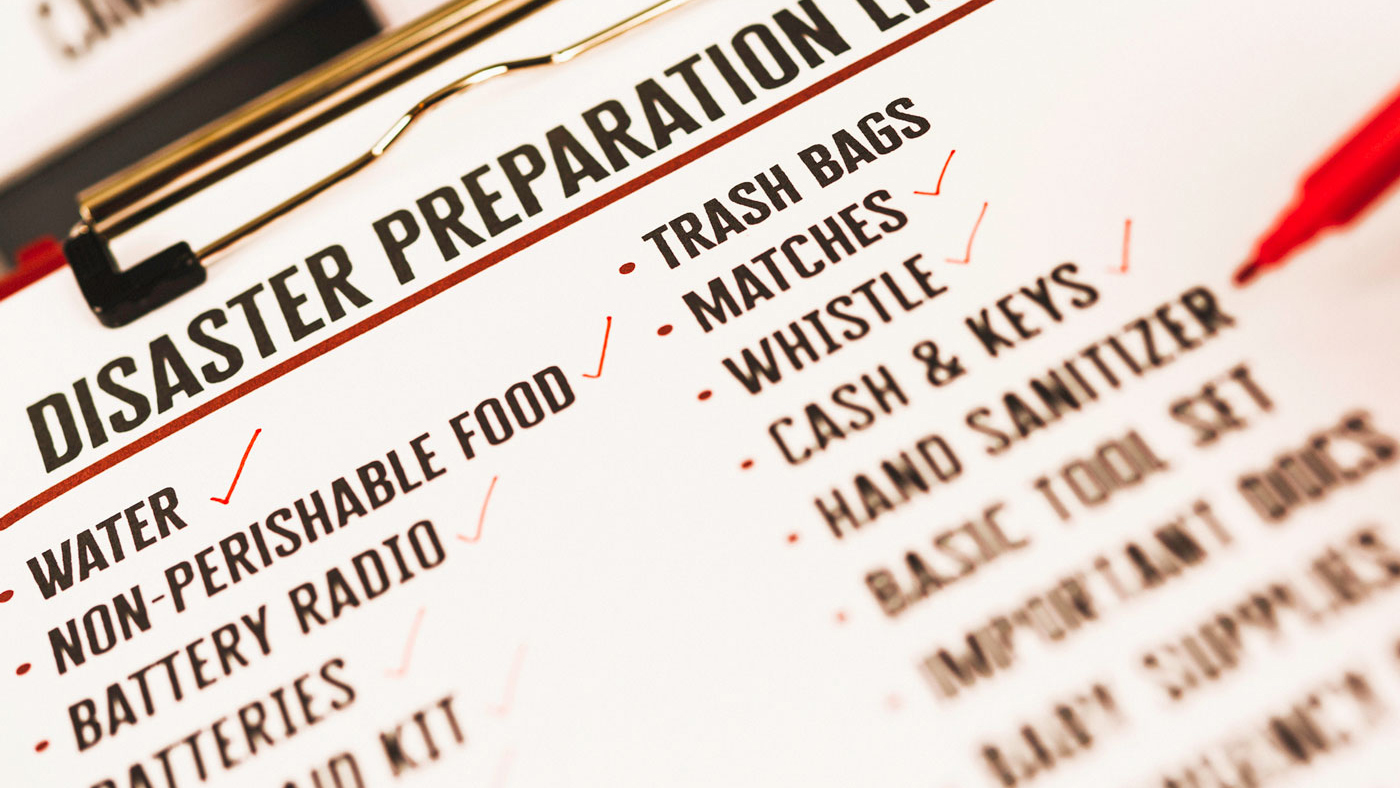Riding Out the Storm? Here's How to Prepare Your House for a Hurricane
“Riding the storm out” is about safety, not adventure.
 Getty
Getty
Many residents in or near the path of a major storm choose to ride out the storm and shelter in place. Whether you’re choosing to stay or remaining there is your only option, here are a few tips to make sure you and your home are prepared.
Before the storm arrives:
- Whether you plan to shelter in place or not, you should stock your home with an emergency supply kit that includes bottled water, non-perishable food, flashlights, batteries and first aid supplies.
- Stay informed by monitoring the storm via TV, radio and the internet.
- Bring outdoor objects inside to limit potential projectiles.
- Lock your doors and close your windows, air vents and fireplace dampers.
- Secure your home by boarding up doors and windows.
- Make sure every family member knows how to turn off the gas, electricity and water so you can turn off utilities if instructed to do so by authorities.
- Set your refrigerator and freezer to their coldest settings in case you lose power.
- Prepare your phone and other electronic devices for the storm, including charging, updating and backing up. Have spare wall and car chargers on hand and make sure your power banks are fully charged.
- Keep cash on hand. If power is lost, ATMs and credit card readers may not work.
- Build up a supply of water for sanitary purposes, such as cleaning and flushing toilets, by filling your bathtub, washing machine, buckets and other large containers with water.
When the storm intensifies:
- Stay indoors and away from windows and glass doors.
- Close all interior doors, and secure and brace external doors.
- Keep curtains and blinds closed. Do not be fooled if there is a lull — it could be the eye of the storm and winds will pick up again.
- Do not venture outside for any reason.
- Take refuge in a small interior room, closet or hallway on the main level. It that’s not possible, lie on the floor under a table or other sturdy object.
After the storm passes:
- Only use generators outside — never indoors — and keep them more than 20 feet away from your home, doors and windows.
- Avoid driving or walking through floodwaters, as you have no idea what’s below the surface and how deep they may be. Six inches of moving water can knock down a person, and a foot of fast-moving water can destabilize a vehicle.
- Be aware of hazards relative to power lines, polluted water and the possibility of fires.
- Watch for and avoid snakes that have been displaced by floodwaters.
- If the power is out, only open your refrigerator or freezer when absolutely necessary. Throw out all perishable food if the temperature inside rises to 40 degrees or higher.
If your safety is at risk at any point:
- Be prepared with a “go bag” for each family member should you need to be transported to a shelter.
- Do not attempt to travel on your own.
- Contact emergency responders immediately if your home becomes unsafe.